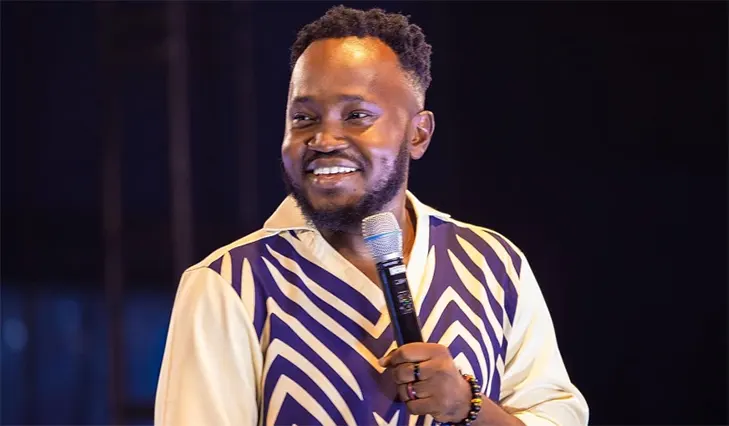The Ghanaian entertainment sphere recently witnessed a clash of opinions sparked by a controversial statement made on the popular television program, United Showbiz. The incident, revolving around an alleged derogatory remark about Jesus Christ by entertainment pundit, Bullgod, brought to the fore questions of religious sensitivity, freedom of speech, and the role of public figures in navigating such delicate situations. Adding fuel to the fire was the perceived inaction of gospel musician and show host, Empress Gifty, whose silence in the face of the alleged blasphemy drew sharp criticism, particularly from comedian OB Amponsah. This incident underscores the complexities of managing public discourse in a pluralistic society and the often conflicting expectations placed upon individuals with significant public platforms.
The heart of the controversy lies in Bullgod’s alleged statement referring to Jesus Christ as a “fool” during a discussion on United Showbiz. While the exact context and intent behind Bullgod’s words remain a subject of debate, the perceived irreverence towards a figure revered by millions of Christians ignited a firestorm of criticism. The immediate outcry on social media and other public forums reflected the deep emotional connection many individuals have with their religious beliefs and the sensitivity surrounding any perceived disrespect towards those beliefs. The incident also highlighted the power of words, particularly in a media landscape where statements made on popular platforms can rapidly disseminate and amplify, potentially exacerbating existing tensions.
Central to the unfolding narrative is the role of Empress Gifty, the gospel musician and host of United Showbiz. Her perceived failure to address Bullgod’s statement directly during the program, and her subsequent silence on the matter, became a focal point of criticism. OB Amponsah, a prominent figure in the Ghanaian comedy scene, spearheaded this criticism, publicly questioning Empress Gifty’s inaction as both a host responsible for managing the discourse on her show and as a professed Christian who, he argued, should have been compelled to defend her faith in the face of such a perceived affront. Amponsah’s criticism, amplified through social media, placed Empress Gifty under intense scrutiny, raising questions about the responsibilities of public figures, particularly those who occupy positions of influence within religious communities.
OB Amponsah’s critique of Empress Gifty centered on her perceived dereliction of duty on two fronts. Firstly, as the host of United Showbiz, Amponsah argued that Empress Gifty had a responsibility to maintain decorum and ensure respectful dialogue on the program. He contended that her failure to immediately address Bullgod’s controversial statement, or at the very least to guide the conversation away from potentially inflammatory territory, represented a lapse in her professional obligations as a host. This perspective highlights the challenging role of media personalities in balancing freedom of expression with the need to prevent offensive or harmful speech.
Secondly, and perhaps more significantly, Amponsah criticized Empress Gifty’s silence from the standpoint of her religious identity. As a gospel musician who frequently expresses her faith publicly, Amponsah argued that Empress Gifty had a moral obligation to defend her beliefs against what he perceived as a blatant attack on Jesus Christ. He suggested that her silence could be interpreted as tacit acceptance of Bullgod’s statement, potentially undermining her credibility as a Christian artist and role model. This critique reflects the broader societal expectation that individuals who publicly embrace a particular faith should actively uphold and defend its tenets, especially in the face of perceived challenges or insults. It also raises questions about the potential conflict between personal beliefs and professional obligations when navigating sensitive public discussions.
The incident involving Bullgod, Empress Gifty, and OB Amponsah provides a microcosm of the broader challenges facing contemporary societies grappling with issues of free speech, religious sensitivity, and the role of public figures in shaping public discourse. The incident also underscores the power of social media in both amplifying controversies and holding public figures accountable for their actions or inactions. While the long-term consequences of this specific incident remain to be seen, it undoubtedly contributes to a larger conversation about the evolving landscape of media, religion, and public discourse in Ghana and beyond. The incident serves as a reminder of the importance of thoughtful and respectful communication, especially when addressing sensitive topics that touch upon deeply held beliefs and values.














